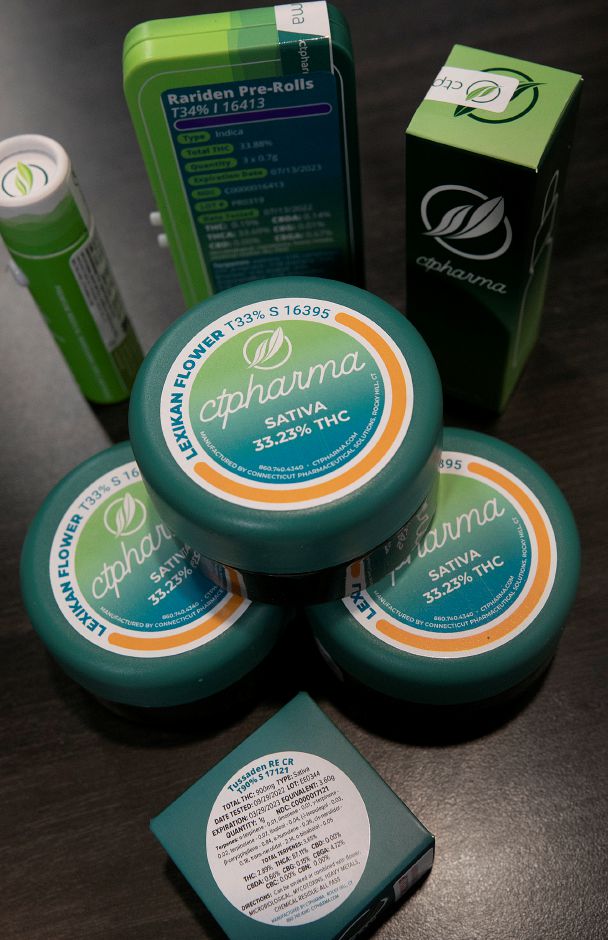With the recreational sale of marijuana now legalized, police find themselves adjusting to a reshaped drug enforcement landscape.
Officers who by and large opposed permitting cannabis sales have spent the past several years gearing up for a marijuana-legal Connecticut and have adopted policies and training to suit the state’s new marijuana laws.
“We’ve had notice that this was it…the legalization was coming, so we’ve done additional training for our officers on what’s legal, what’s not legal,” Southington Police Chief John Daly said.
Enforcing what is or is not legal — particularly in regard to DUI arrests — may prove challenging for officers, however.
There is very little technology to determine if an individual is in fact high, and state law does not currently place a limit on the volume of THC a motorist may have in their bloodstream while driving.
As a result, Cheshire Police Chief Neil Dryfe said officers will need to rely on testing methods such as urine samples to make arrests.
Dryfe said a potential outcome of leaning on these procedures — as police have done for decades — could be unwarranted DUI charges, as current test measures can detect marijuana in the bloodstream days after it is consumed.
“Marijuana stays in people’s bloodstream for a lot longer than alcohol does,” Dryfe said. ”The fact that somebody’s urine sample tests positive does not necessarily mean that the person was smoking marijuana or using marijuana in the immediate lead up.”
Data out of states such as Colorado indicate measurable increases in THC-related DUI arrests after marijuana sales were legalized, according to the Colorado Division of Criminal Justice.
Daly too said he worried that ease of access to cannabis could lead to a spike in DUI arrests and automobile accidents involving an impaired motorist.
Daly is not concerned by the prospect of adults choosing to use marijuana, but is troubled by statistics out of peer states indicating a growth in high driving on the horizon.
“We worry about accidents associated with people driving impaired,” Daly said. “I’m not going to judge people whether they choose to [consume marijuana]. I just hope they do it responsibly, and don’t drive after.”
In the interest of reducing the odds of false DUI charges, the state legislature mandated police departments increase the number of drug recognition experts on hand as part of the passage of Public Act 21-1 in 2021.
Drug recognition experts, or DREs, Daly said, are officers who receive specified training in determining whether or not an individual is under the influence of narcotics.
Though having these experts on hand is essential to pressing DUI charges, becoming a DRE is lengthy and expensive process which Dryfe said entails extensive training sessions and a cross-country trip to Arizona.
Wallingford Police Sgt. Stephen Jaques said Public Act 21-1, though a valuable measure for both police accountability and DUI enforcement, may place financial strain on smaller departments.
“It’s going to require law enforcement agencies across the state send more people to this training,” Jaques said. It’s a pretty rigorous program from what I hear, and it’s also expensive. So, that’s something that law enforcement and all agencies across the state have had to deal with.
Yet, the predicted jump in impaired driving and the number of certified DREs likely will not be accompanied by an expanded police presence on Connecticut highways and backroads.
Daly, Dryfe and Jaques each indicated their departments will not increase the number of officers on the road in their respective cities, with Jaques attributing a plateau in highway patrols to persistent short staffing observed statewide.
“Just because marijuana is legal doesn’t necessarily mean that we will be able to increase patrols,” Jaques said. “We’re still dealing with understaffing issues across the state.”
Though Daly, Dryfe and Jaques remain skeptical of touted benefits of marijuana legalization, they each said they accept new state laws and are now focused on preventing motorists from inhaling or ingesting THC before operating a vehicle.
Jaques drew parallels between cannabis and alcohol consumption and urged marijuana users to select designated drivers before consuming THC.
“I just stress that obviously with marijuana being legal, it’s important for citizens to know that just like alcohol, it’s incumbent upon them to make sure they use it in a safe manner,” he said.




